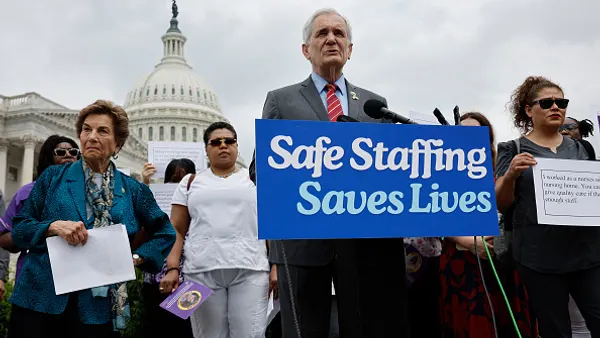Despite ongoing pushback to diversity, equity and inclusion initiatives, a majority of executives (57%) report that they’ve expanded their commitments to DEI over the past year, according to a survey report released by Littler Jan. 10.
But just as many executives (59%) noted that backlash toward DEI programming has increased since the U.S. Supreme Court cast down race-based admissions policies last June, Littler said. Additionally, nearly three-quarters of C-suite leaders surveyed said handling politically divisive topics in the workplace has become something of a challenge — indicating employers may be feeling pressure from all sides regarding DEI.
However, leaders also said the rulings have not lessened their prioritization of DEI programming; more than two-thirds said the rulings “have not even changed their approach to IE&D in any way.”
“We’re seeing many employers maintain — or even double down on — their commitment to IE&D, even as backlash spikes,” Jeanine Conley Daves, Littler shareholder and member of the firm’s IE&D consulting practice, said in a statement. “Demonstrating that IE&D is part of their core values, many organizations are taking the prudent step of auditing and assessing their current initiatives, rather than eliminating them amid the challenges in today’s political and legal environment.”
When the data drills down on different leaders, such as chief diversity officers and other executives, different perspectives appear. Only 41% of CDOs surveyed said their organizations haven’t changed their approach at all in the wake of the SCOTUS rulings, compared to 69% of all leaders.
Notably, chief legal officers are more likely to say that organizations are increasing efforts around social justice initiatives; only 11% of CDOs say the same.
“The lack of alignment in the C-suite suggests an opportunity for increased communication across roles to minimize legal risks and allow for the effective implementation of IE&D programs,” Littler said.
Other surveys have also indicated that companies are concerned about the future of DEI initiatives moving forward from the SCOTUS ruling; 86% of companies that participated in Coqual’s Black Equity Index said they were concerned about what the ruling would mean for workplace DEI, and many reported lessening involvement and shrinking investment.
Public movements against DEI programming have also made headlines. State governments have especially challenged DEI investments at public colleges and universities, while one conservative group continues to file legal challenges to company DEI programs.














